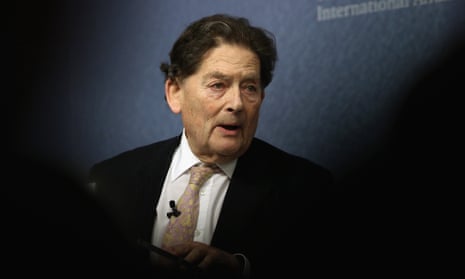My football team, AFC Wimbledon, may be languishing down in the third division, as it was once called, but the Conservative MP for Wimbledon, Stephen Hammond, showed himself to be in the Premier League last week.
In that refreshing, surprising vote on Thursday, he and his fellow Tory rebels stood up to be counted in the cause of parliamentary democracy. By voting against Theresa May’s plan to prevent parliament from having the last say on whether the terms of any Brexit deal should be accepted, they joined the noble ranks of “mutineers” and “enemies of the people”.
As regular readers know, I still hope that things will not get that far, and that, somehow or other, sense will prevail as the size of the potential disaster of a Brexit sinks in. And already the deleterious economic impact of the referendum-induced devaluation is becoming apparent.
Incidentally, may I respectfully remind people that Brexit has not happened yet? Even seasoned interviewers on Radio 4 make the mistake of confusing the referendum with Brexit.
The hope among us unashamed Remainers is that opinion will shift sufficiently for the development of a burgeoning realisation that the country made a serious mistake on 23 June last year, not least because enough voters were misled by the blatant lies of Boris Johnson and his ilk. Also, it has to be said, the Remain campaign failed in its patriotic duty to explain the economic and strategic benefits of the European Union – a failure pinpointed in Gordon Brown’s book Britain: Leading, Not Leaving, where he says of our role in the union: “Britain can argue for, and achieve, the best balance between national autonomy and international cooperation for the 21st century.”
And in his recently published memoirs, Brown also tells us that, when he addressed the European parliament in March 2009 on the need for the collective economic stimulus which did indeed “save the world”, the only hecklers were those British founts of Eurosceptical bile, Nigel Farage and Daniel Hannan.
They are a curious mixture, the Brexiters. There are the neoliberal ideologues, such as my old friend Lord Lawson, who unashamedly wish to bury the security and protection of Enlightenment values afforded by the EU and, in Lawson’s words, finish the “Thatcher revolution” – as if that revolution had not finished off enough people’s hopes already.
But the ideologues themselves are a relatively small band – the tail that wags the dog, as it were. I am continually surprised, indeed shocked, by the frequency with which I encounter people who have not been “left behind” but who, for minor prejudicial reasons, voted to Leave – often on the not-so-safe assumption that Remain was going to be triumphant and a protest vote would do no harm. Some hope!
Which brings us to the real problem that has engulfed otherwise sensible Remain MPs: most of them have been so pusillanimous in the face of their “left behind” constituents that they have forgotten Edmund Burke’s dictum that their duty is to be representatives, not delegates – to apply their judgment, not act as conduits for prejudices they do not share.
My impression is that the despair, indeed anger, felt by “left behind” Brexit voters is the accumulated result of the Thatcher regime’s neglect of the north and manufacturing, compounded by the impact of globalisation: as analysts are pointing out a lot these days, the losers from globalisation have simply not been compensated from a pot whose proceeds should have been distributed more equitably.
Now, Lawson has proclaimed in his Thatcher lecture that “the time has come to call an end to this demeaning process”. The process to which he refers is May’s attempts to square the circle of the Conservative party’s conflicting demands from Brexit.
No, Lawson wants to leave the EU now, and rely on starting all over again in the World Trade Organisation – a WTO whose very function, and therefore future, is now being questioned and threatened by the egregious Donald Trump. I am not making this up.
The truth is that the time has come to call an end to the demeaning process that has been set in train by a misleading and badly conducted referendum. MPs and others need to tell it as it is. If the governor of the Bank of England can, so can they.
Already, enlightened MPs tell me the ground is shifting slowly in the direction of Remain. One recent poll showed 53% for Remain, against 47% Leave. There seems to be a consensus that if this became 60% versus 40%, that could be decisive.
As the veteran pollster Sir Robert Worcester recently reminded me, beneath a seemingly small shift in polling there can lie a lot of what he calls “churning”: in other words, a net shift of one percentage point may be the result of 6% of people changing their minds one way, and 7% the other.
Can it be beyond the bounds of possibility that, as the economic horrors dawn, the churn begins to favour Remain after all? Meanwhile, the message has to be got across to those “left behind” who said they had nothing to lose that, almost certainly, if they don’t change their minds, they have even more to lose.

